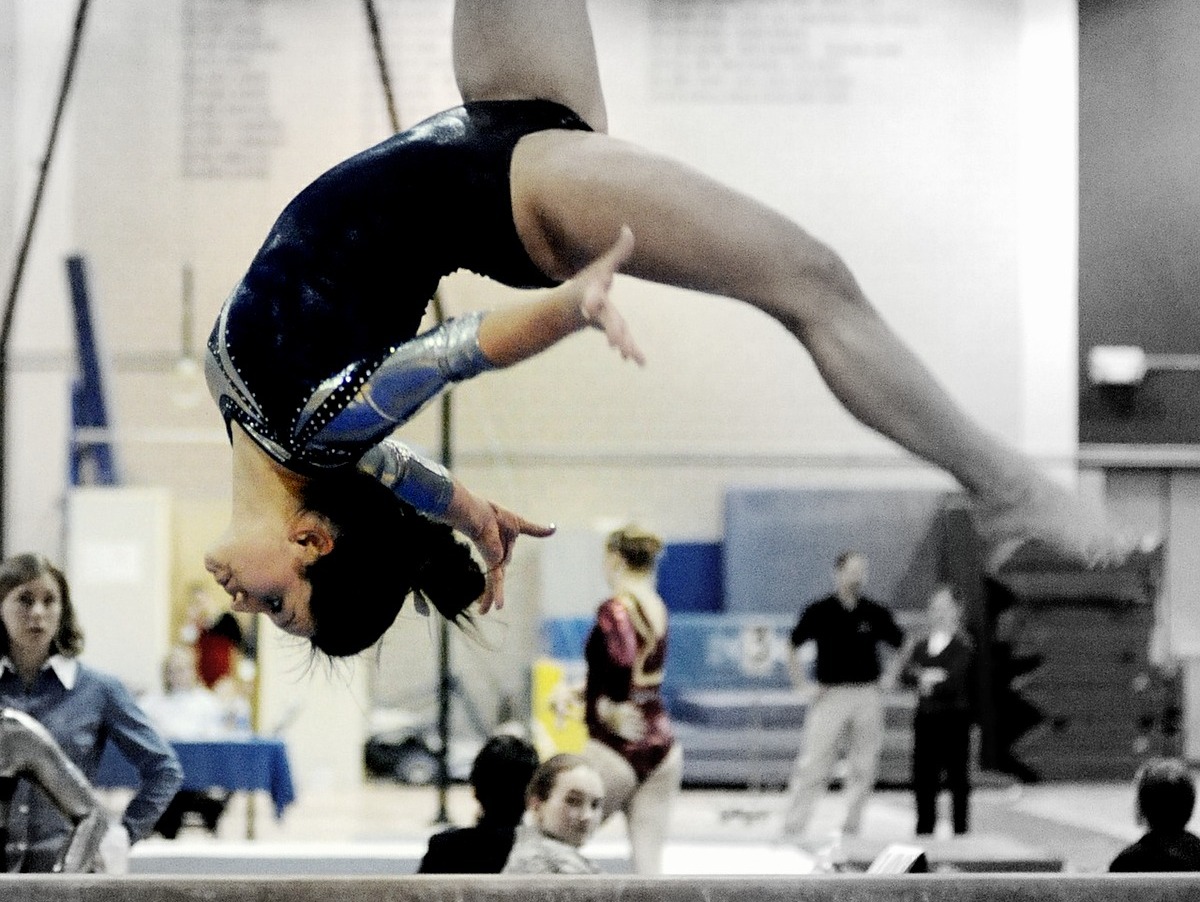
The secret is that there is no secret, though you'd be hard-pressed to find anyone who believes anything so ridiculous as years of tireless work. If there were a secret, you could give them a leg up without the blisters and backaches, without the torn ligaments and bone bruises. If there were a secret, someone might have shown mercy and told it to you sooner.
No one else could want the secrets you had earned. You knew how early gyms opened so that it seemed impossible they ever closed. You knew how long you could hide under the foam block pit before adults found you and made you stretch your calves until you wanted to cry but didn't. You knew how to swallow pain when you couldn't swallow breakfast. Your legs could hyperextend now, but the secret you do not reveal to your parents is precisely how much that will cost to fix once gymnastics is done with you.
You sacrificed lunches and pretty feet; you woke hours before dawn, even on Christmases and your birthday, all to make this look easy. What you gave up might equal what you achieved, though the scales tip against you. Only a handful of gymnasts ever make it to the Olympics; only a few of them don't promptly burn out. You started at seven, but know lithe, balletic girls who started at four and show every hour of that advantage over you. All you can pray is that their ACLs snap before the chasm between your skill and theirs grows insurmountable.
You didn't have your first period until you were fifteen. They have been sporadic since. You have never had a boyfriend.
You know all you are missing because you see your sister, your other half, your twin. No one believes that last one. Strangers ask if you are the younger sister or, at most, assume you are fraternal. Her body curves where yours stops short. Her complexion is the color of roses to your mushroom sallowness. She spends her days awash in Chinese food and sex, frivolities forbidden to you or for which you have no time.
Had you not watched the Olympics one early primordial summer, deciding you would not rest until you figured out the secret behind their taut and clockwork precise limbs, you might have been identical twins still. The closest you ever came to reuniting in form was when your fibula and tibia wrenched apart in a series of pops, forcing you to stay off your feet for months of agonizing sloth. You couldn't enjoy her indolent diet, counting each calorie as it stood between you and a childhood, childish goal.
Why had your parents believed this dream wholeheartedly instead of buying you a horse or royal title? For all they spent on your training, it might have been cheaper for them to foster an equestrian duchess.
All this time, your sister was in the background, reading books in the bleachers of your meets or flirting with the male gymnasts, the same ones who never noticed you were wowing the crowd with an Arabian salto. Your face was the same as hers, even if puberty had more idleness to shape her in your sister's buxom image otherwise.
She looks up at you now, landing a jump to side split sit. As though she hadn't been dragged to your practices and meets a hundred times, as though this were the first time she witnessed you, she sighed, "I would give anything to be able to move like you do." You wonder what precisely you gave to be able. Without hundreds of hours of stretching, without the strength of tumbles and cartwheels, you would not have the confidence or flexibility to try this. Still, you look down at her, superimposing what she could do if she had been so dedicated, so obsessive as you, whittling her down into your twin again. At this point, with a decade of divergence between you, would it be possible to make her like you now? Not without starvation and surgery.
If you abandoned the balance beam this very moment, could you be her twin again? No. When you pursued gymnastics with your every spare hour, you became a different person, even to your skeleton. You wonder if that was once the point of it, to alter yourself until you could be mistaken for your own person. Was that alone worth the trade?
You want to impress your sister. You want to show off what you can do, and she cannot. You do a head kip, your tightly bound hair brushing against the beam as you swing to your feet again. You hazard a glance at her. Her eyes twinkle. You flip to your hands, planting them firmly, then walkover forward and back-the tic-toc-your toes just touching the beam before restoring you upright. In all your years of doing this, you have forgotten the look of awe. You have, in particular, forgotten the reflection of it in a face so nearly yours.
"How do you do that?" asks your sister. "What's the secret?"
Thomm Quackenbush is an author and teacher in the Hudson Valley. He has published four novels in his Night's Dream series (We Shadows, Danse Macabre, Artificial Gods, and Flies to Wanton Boys). He has sold jewelry in Victorian England, confused children as a mad scientist, filed away more books than anyone has ever read, and tried to inspire the learning disabled, gifted, and adjudicated. He can cross one eye, raise one eyebrow, and once accidentally groped a ghost. When not writing, he can be found biking, hiking the Adirondacks, grazing on snacks at art openings, and keeping a straight face when listening to people tell him they are in touch with 164 species of interstellar beings.